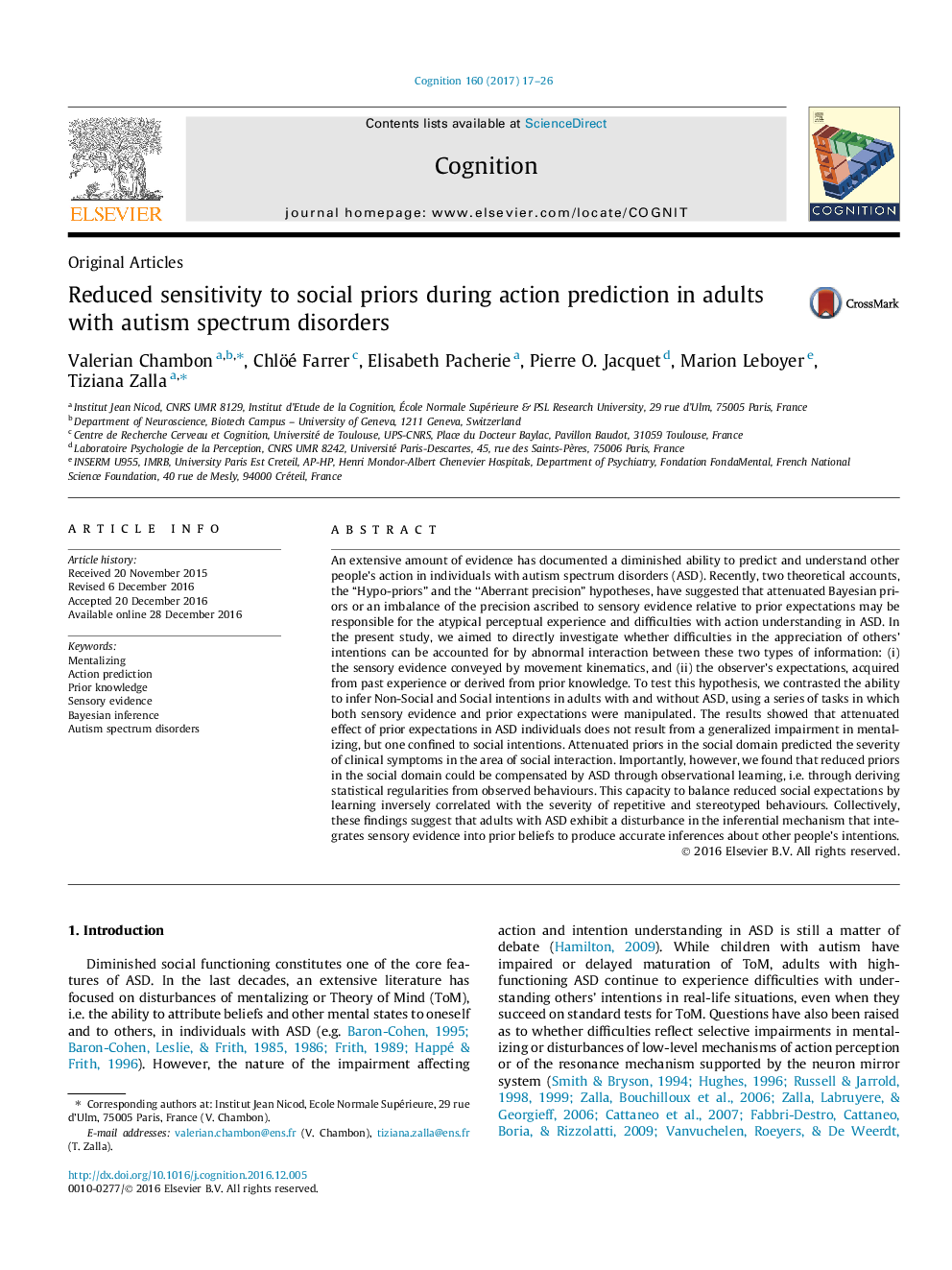| کد مقاله | کد نشریه | سال انتشار | مقاله انگلیسی | نسخه تمام متن |
|---|---|---|---|---|
| 5041620 | 1474107 | 2017 | 10 صفحه PDF | دانلود رایگان |
An extensive amount of evidence has documented a diminished ability to predict and understand other people's action in individuals with autism spectrum disorders (ASD). Recently, two theoretical accounts, the “Hypo-priors” and the “Aberrant precision” hypotheses, have suggested that attenuated Bayesian priors or an imbalance of the precision ascribed to sensory evidence relative to prior expectations may be responsible for the atypical perceptual experience and difficulties with action understanding in ASD. In the present study, we aimed to directly investigate whether difficulties in the appreciation of others' intentions can be accounted for by abnormal interaction between these two types of information: (i) the sensory evidence conveyed by movement kinematics, and (ii) the observer's expectations, acquired from past experience or derived from prior knowledge. To test this hypothesis, we contrasted the ability to infer Non-Social and Social intentions in adults with and without ASD, using a series of tasks in which both sensory evidence and prior expectations were manipulated. The results showed that attenuated effect of prior expectations in ASD individuals does not result from a generalized impairment in mentalizing, but one confined to social intentions. Attenuated priors in the social domain predicted the severity of clinical symptoms in the area of social interaction. Importantly, however, we found that reduced priors in the social domain could be compensated by ASD through observational learning, i.e. through deriving statistical regularities from observed behaviours. This capacity to balance reduced social expectations by learning inversely correlated with the severity of repetitive and stereotyped behaviours. Collectively, these findings suggest that adults with ASD exhibit a disturbance in the inferential mechanism that integrates sensory evidence into prior beliefs to produce accurate inferences about other people's intentions.
Journal: Cognition - Volume 160, March 2017, Pages 17-26
